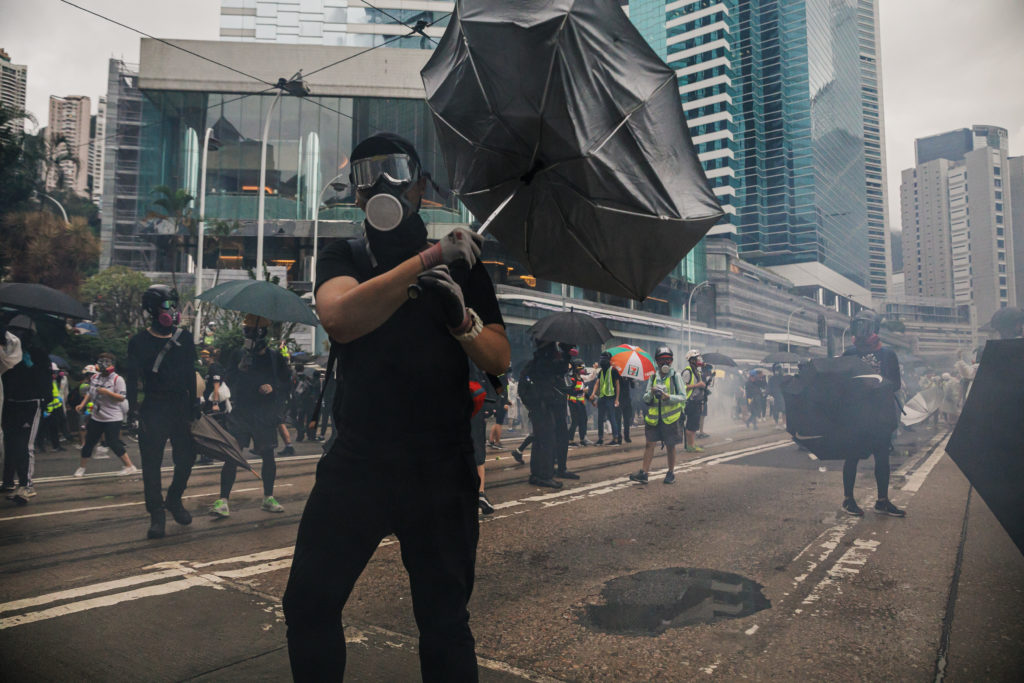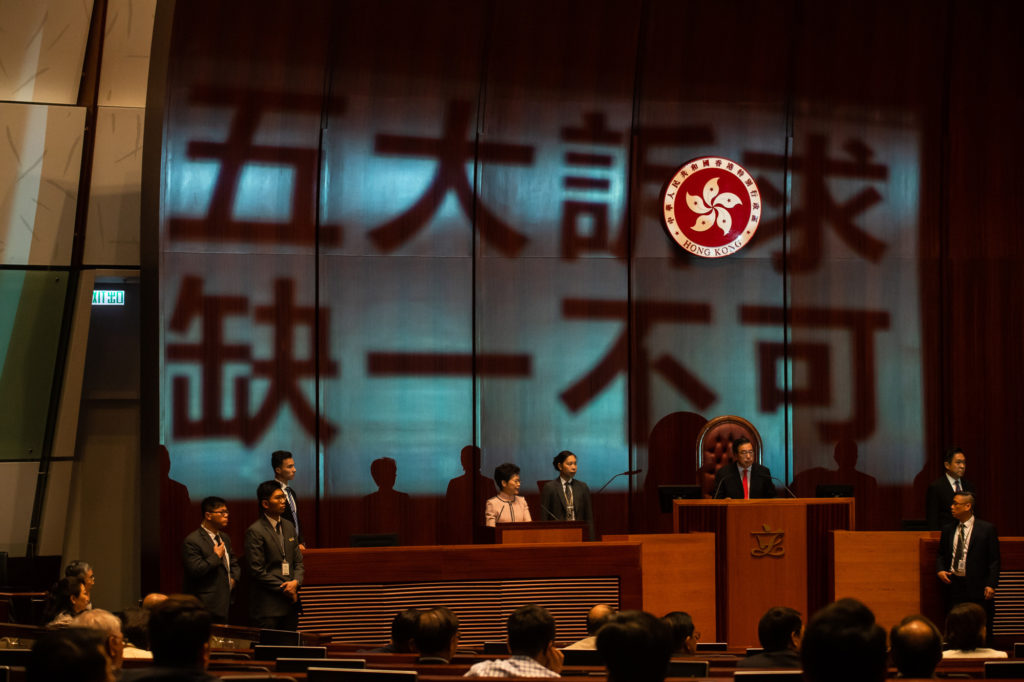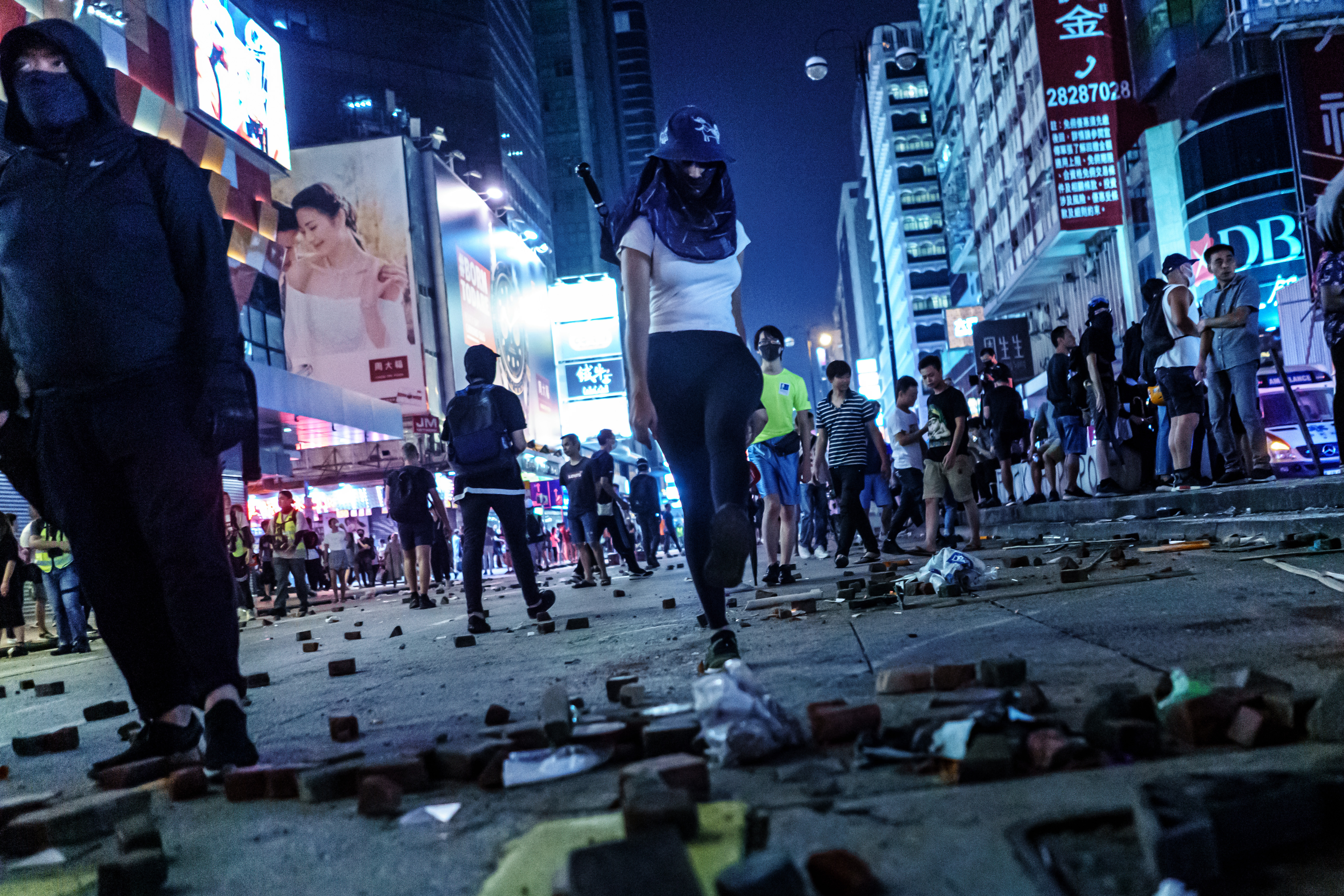For several months, the streets of Hong Kong have been full of chaos.
Every week, hundreds of thousands of Hongkongers join together demanding democracy. As citizens have demonstrated relentless persistence, the protests have evolved into a powerful movement.
But why the political unrest?
“In April 2019, the Hong Kong government introduced an extradition bill that would allow the extraction of criminal suspects to any jurisdictions that Hong Kong does not have an existing formal agreement with,” says Meng Lu Riddle, Assistant Director of International Education at Sinclair.
However, the bill, known as the Fugitive Offenders and Mutual Legal Assistance in Criminal Matters Legislation Bill 2019, extends this extradition agreement to mainland China, where the courts are controlled by the Chinese Communist Party.
Carrie Lam, Chief Executive of Hong Kong, who is pro-Chinese government, claims the bill is necessary to permit justice in cases where criminals escape punishment due to Hong Kong’s judicial system.

Related Articles
This is most prominent in the case of Hong Kong student Chan Tong-Kai, who killed his pregnant girlfriend, Poon Hiu-Wing, while on vacation in Taiwan. Chan fled back to Hong Kong and couldn’t be charged with the murder of Poon because there is no extradition agreement between Hong Kong and Taiwan. He only faces charges in Hong Kong for the illegal possession of Poon’s financial properties.
“The extradition bill has sparked outrage among people who fear the bill could be abused by the Chinese government to detain anyone for political reasons and subject them to unfair trials and torture,” explains Riddle.
“Hong Kong residents, especially those who grew up with Western liberal values, are concerned with losing their freedoms and autonomy,” Riddle continued. “This is especially the case in recent years as mainland China has become more powerful both economically and politically. The central government aims to tighten its control over Hong Kong.”
After massive protests erupted in response to the bill in June, Lam suspended the bill.
However, protests have continued as Hongkongers are dissatisfied with the legal action taken. Protestors are worried the bill will be revived and claim they will march until the bill is formally withdrawn.
In recent weeks, protestors have resorted to violence as their demands are not being met by authorities. In response, the Hong Kong government has issued a ban on the wearing of surgical masks in protest under the Emergency Regulations Ordinance of 1922.
The bill permits restrictions on an individual’s freedoms as long as it promotes public interest. The ban is intended to discourage violence, as police will be able to more easily identify violent marchers.
Despite increasing restrictions enforced by the government, demonstrators have endured their cause.

On Sunday, Oct. 20, nearly 350,000 Hong Kong citizens took to the streets, led by Figo Chan, Vice Convener of the Civil Human Rights Front. Protestors marched from Tsim Sha Tsui to the West Kowloon station, challenging the recent ban on assembly and the attack on CHRF’S Convener, Jimmy Sham.
Though their protest started out peaceful, it gradually became more violent. Many protestors resorted to vandalism and petrol bombs.
Angered by the uproar, officials used force to deter the protestors, including water cannons, tear gas and rubber bullets.
“Another reason for the massive protests is the anxiety over the slow economic growth,” Riddle said. “Hong Kong has suffered greatly from the 1998 Asia financial crisis and the 2008 financial crisis. The increasing wealth gap and social inequality keep getting worse every year. In 1997, Hong Kong’s GDP was about 18% the size of the mainland China’s economy. Over 22 years, mainland China had gone through significant economic growth, and now Hong Kong’s GDP is now only 2.7% of China’s economy.”
With the unwillingness of officials to compromise with protestors, an immediate solution seems unlikely. Riddle claims that the economic pressure will eventually push the protests to an end.
“People will start feeling the dire economic impact and recession will likely occur in the near future,” Riddle said.
Kayleigh DeLaet
Reporter


